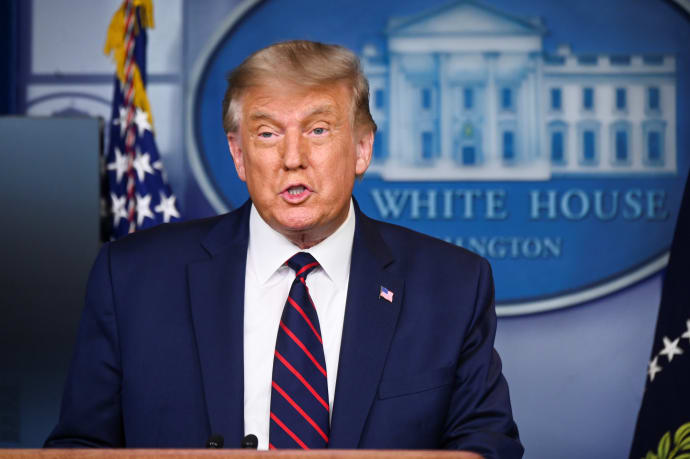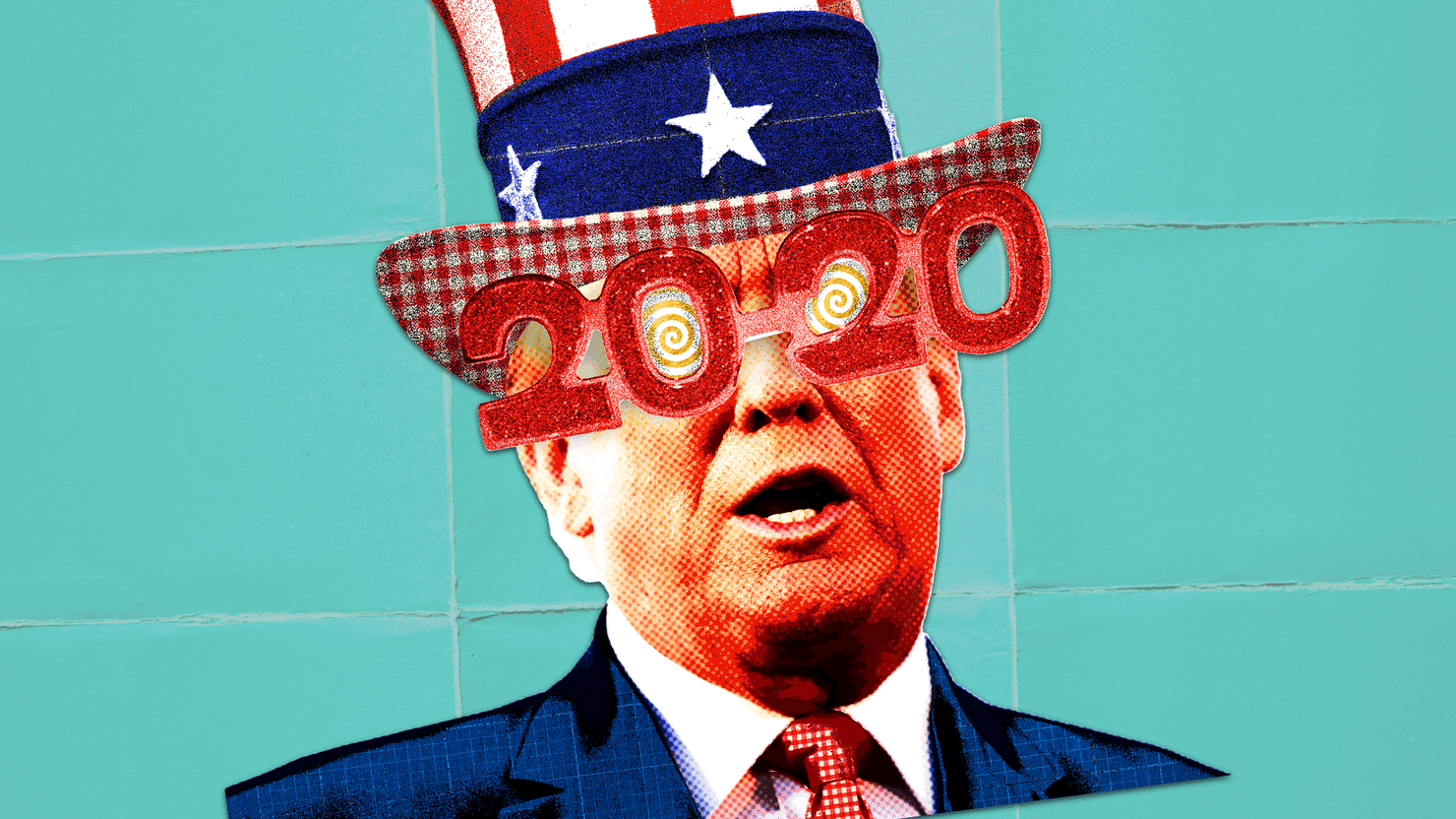If Joe Biden is going to win re-election in November, he will have to accomplish several goals. The big one is obviously dispelling fears about his age. But that’s hardly the only problematic assumption that has taken root.
Over the course of the last couple of years, Donald Trump has pulled off an impressive maneuver: He has slowly gaslit America into thinking his presidency ended in 2019. This is to say, he has gotten many Americans to tacitly accept that nothing that happened in 2020 can be used against him—that the whole crazy year is off-limits to discuss. If Biden wants to win re-election, he will have to dismantle this premise.
Before we get into that, though, it’s important to concede that any president would have understandably struggled during a global pandemic. Having said that, presidents who lead us through unprecedented challenges are often considered “great” by history. Rather than being left off their resumé, these obstacles become their calling card.
One of the big reasons that pearl-clutchers like yours truly preach about electing experienced and competent men and women of character is that such leaders are needed for times such as this.
Think of it like this. Almost any certified pilot is good enough to fly a complex aircraft on a nice sunny day. But if weather conditions are adverse and that plane experiences severe turbulence, it pays to have a skilled professional in the cockpit.
While steering the ship of state, Trump invited turbulence and knocked over more than a few drink carts. And that was the case even before the storms hit.
As you may recall, Trump recommended injecting disinfectant and light into people’s bodies as possible COVID treatments, told Bob Woodward he knew COVID was “deadly” (while misleading the public), and publicly trashed the very health officials he appointed to run the Coronavirus Task Force (just to mention a few of his greatest hits). Frankly, the one thing he did do well was oversee Operation Warp Speed, which quickly produced a COVID vaccine. If Trump wants credit for this (he doesn’t), I’ll gladly grant it.
Even if you buy the argument that everything was awesome before COVID destroyed “the greatest economy in the history of the world” (a dubious declaration), it’s still wrongheaded to give anyone a pass on what amounts to a quarter of his tenure and the culmination of his presidency.
Yes, the unemployment rate was low prior to 2020, but it is low again today. Today’s economic concerns have more to do with inflation, some of which was caused by the COVID shutdown that Trump oversaw, and some of which was caused by spending. Trump and Biden are both to blame for this, but Trump added more debt (much of it, before the pandemic).
But it’s not just the economy. When you consider that Trump’s 2017 inaugural speech was framed around stopping “American carnage,” it’s also worth looking at how he fared on the issue of crime. And once again, I believe that his 2020 performance is fair game.
According to the FBI, violent crime spiked in 2020 (Trump’s final year). Since then, the violent crime rate has fallen sharply. And no, it hasn’t merely returned to pre-2020 levels. As crime analyst Jeff Asher writes, “…2023 featured one of the lowest rates of violent crime in the United States in more than 50 years.” (Note: Property crime has also come down.)
To be sure, it is possible to argue that crime is in some way related to the pandemic. But a) this connection can be overstated, and b) how much of the violence in 2020 was in some way related to the chaotic and anxious environment that Trump helped cultivate?
This brings us back to my main point: Biden simply can’t let Trump run for president with the assumption that 2020 was an anomaly and that he is not responsible for what transpired that year, anymore than a quarterback should be able to claim that he was only responsible for the first three quarters of a game.
Changing this belief won’t be easy, but it should be one of the things on a long checklist for Team Biden.

Donald Trump holds a news conference on August 23, 2020.
Erin Scott/Reuters
To accomplish this, Washington Monthly’s Bill Scher recently reminded us of a Ronald Reagan ad from his 1984 re-election campaign, wherein the Gipper opens by saying, “This was America in 1980,” while images of burning American flags, Iranian hostages, and Russian tanks heading into Afghanistan were shown on screen. (Note: Reagan was running for re-election against Walter Mondale, who was vice president during the preceding Jimmy Carter administration.)
Scher suggests Biden narrate a similar re-election ad with b-roll footage showing a montage of riots and other 2020-era controversies, while Biden narrates, “This was America in 2020: literally on fire. After four years of a president spewing hatred toward business leaders, soldiers, athletes, immigrants, people of different faiths, political opponents, even at times political allies, our country was falling apart. We were turning on each other, and democracy itself hung by a thread.”
Like Reagan’s ad, Biden’s would then pivot to more upbeat music and talk optimistically about the future of democracy and America.
I’m skeptical this type of message would work in an overt sense, which is to say that I doubt Biden could find a way to actually score points by blaming Trump for the George Floyd riots.
What I do think Biden can do, however, is remind us all that Trump was president for four (not three) years, that his term ended in disaster, and that his irresponsible behavior was a major contributor to this end. In short, we should judge him on how his full term ended.
It is, perhaps, ironic that while Trump can’t quit bringing up the 2020 election loss (that he claims he won), he wants us to forget everything else about the year 2020. One might even surmise that the latter proves the former.


